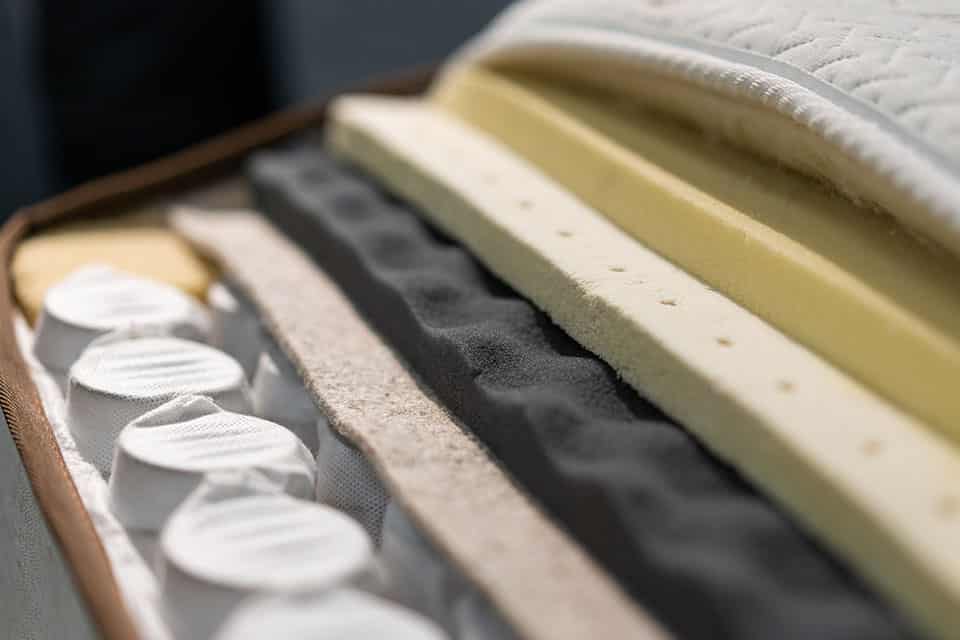YOUR CART
- No products in the cart.
Subtotal:
$0.00

Sleep is vital for overall health and well-being, but as technology becomes increasingly integrated into our daily routines, it’s important to dive deeper into the impact technology has on sleep.
Explore how technology can both help and hinder your sleep and provide insights on how to strike the right balance for optimal sleep quality.
Did you know that sleep and technology have a close connection? How we use technology in our daily routines can greatly impact our sleep patterns! Unfortunately, the widespread use of electronic devices before bed has led to a concerning phenomenon known as sleep debt, where many individuals get lower quality sleep and less of it.
Even the bright, blue light from screens can excite and stimulate your brain, making it difficult to relax and negatively affecting sleep. According to a poll by the National Sleep Foundation, nine out of 10 Americans use some form of technological device before bed, potentially contributing to their nightly sleep debt.
One study contrasted the sleep habits of those who read printed books to light-emitting e-readers before bed and found that participants who used e-readers took longer to fall asleep, had worse quality sleep, and reported feeling less awake the following day. These findings further highlight the importance of understanding the relationship between sleep and technology.

In today’s digital age, technology can offer innovative solutions that enhance sleep quality. Tools like sleep tracking devices and apps can help monitor sleep patterns, providing valuable insights to the duration and quality of your sleep. By analyzing the data collected, you can gain a better understanding of your sleep patterns and make informed adjustments to improve your sleep.
Smart lighting systems have also emerged as a helpful tool in optimizing sleep. Mimicking natural light patterns, these systems can regulate circadian rhythms and promote healthier sleep-wake cycles. By syncing with your internal body clock, they create an environment conducive to falling asleep faster and waking up feeling refreshed.
Smart beds and mattresses have revolutionized sleep comfort, incorporating innovative sleep technology and utilizing sensors to monitor sleep patterns to provide personalized insights to optimize sleep quality. With features like adjustable firmness, temperature control, and even snore detection, smart beds and bases offer enhanced functionality and comfort to enhance your overall sleep experience.
While technology has brought several benefits to the bedroom, it can also have detrimental effects on sleep quality if not used mindfully. One significant factor is the blue light emitted by screens. Exposure to blue light, especially before bedtime, suppresses the production of melatonin, a hormone that regulates sleep. This disruption to your natural sleep-wake cycles can make it harder to fall asleep and lead to overall sleep deprivation.
Another issue is the addictive nature of technology itself. Scrolling through social media feeds or binge-watching your favorite shows late into the night can easily consume valuable sleep time. This addiction to screens not only has a direct influence on sleep duration but can also affect the quality of rest.
Even the presence of electronic devices in the bedroom can disrupt sleep. Notifications, alerts, and the constant temptation to check your phone can interfere with the relaxation and unwinding process necessary for a good night’s sleep. Plus, the stimulation from technology can leave you feeling wired and alert when you should be relaxing and transitioning into a state of deep sleep.
To strike a healthy balance between technology and sleep, it’s important to establish a bedtime routine that promotes relaxation and minimizes screen time. Here are a few tips to help you achieve this:
As you navigate the digital era, understanding the impact of technology on sleep is crucial. While technology can offer valuable tools for improving sleep, it’s important to be mindful of its potential drawbacks. By implementing strategies to balance technology usage and prioritizing a healthy sleep routine, you can harness the benefits of technology while ensuring optimal sleep quality. Remember, a good night’s sleep is essential for your overall well-being, so let’s embrace technology responsibly to achieve better sleep.